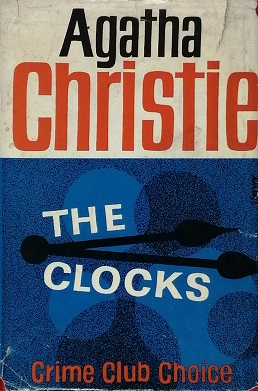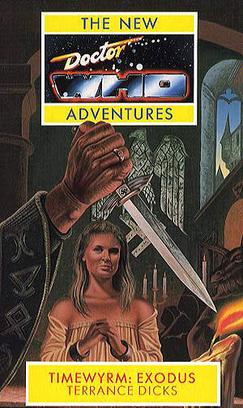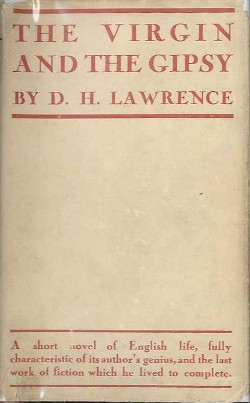Synopsis
The playlet involves a young woman coming home, tired, after a busy day at a war plant. Each time she comes in there is a letter from her husband overseas, and she remembers their conversations before he went off to war. She was concerned about him, because she felt it was a "young man's war" and he should stay home with her and the baby. However he was insistent that his country needed him. The plot then turns to the husband trying to manage his ship while it is being attacked by a submarine. The next day, the woman receives another letter from her husband, who is shown in double exposure, reminding her that freedom comes high, often at the price of human lives. The door bell rings, and it is a Western Union telegram, saying that her husband died.
The point of the film was to communicate to the American people that many of their sons and husbands who were going overseas, would not be coming back, and that they would have to understand they would be sacrificing their loved ones to secure freedom. Given the extraordinary sensitivity of the subject matter, the government short is notable both as propaganda and as a meditation on what has to be sacrificed for the maintenance of freedom.

A Letter to Three Wives is a 1949 American romantic drama that tells the story of a woman who sends a letter to three women, saying she has left town with one of their husbands without revealing which one. It stars Jeanne Crain, Linda Darnell, Ann Sothern, Paul Douglas, Kirk Douglas, and Jeffrey Lynn. Thelma Ritter as "Sadie" and Celeste Holm have key supporting roles.

The United Service Organizations Inc. (USO) is an American nonprofit-charitable corporation that provides live entertainment, such as comedians, actors and musicians, social facilities, and other programs to members of the United States Armed Forces and their families. Since 1941, it has worked in partnership with the Department of War, and later with the Department of Defense (DoD), relying heavily on private contributions and on funds, goods, and services from various corporate and individual donors. Although it is congressionally chartered, it is not a government agency.

Käthe Kollwitz was a German artist who worked with painting, printmaking and sculpture. Her most famous art cycles, including The Weavers and The Peasant War, depict the effects of poverty, hunger and war on the working class. Despite the realism of her early works, her art is now more closely associated with Expressionism. Kollwitz was the first woman not only to be elected to the Prussian Academy of Arts but also to receive honorary professor status.

Thea Gabriele von Harbou was a German screenwriter, novelist, film director, and actress. She is remembered as the screenwriter of the science fiction film classic Metropolis (1927) and for the 1925 novel on which it was based. von Harbou collaborated as a screenwriter with film director Fritz Lang, her husband, during the period of transition from silent to sound films.

Freedom Radio is a 1941 British propaganda film directed by Anthony Asquith and starring Clive Brook, Diana Wynyard, Raymond Huntley and Derek Farr. It is set in Nazi Germany during the Second World War and concerns an underground German resistance group who run a radio station broadcasting against the totalitarian Third Reich.

The Clocks is a work of detective fiction by British writer Agatha Christie, first published in the UK by the Collins Crime Club on 7 November 1963 and in the US by Dodd, Mead and Company the following year. It features the Belgian detective Hercule Poirot. The UK edition retailed at sixteen shillings (16/-) and the US edition at $4.50.

England, My England is a collection of short stories by D. H. Lawrence. Individual items were originally written between 1913 and 1921, many of them against the background of World War I. Most of these versions were placed in magazines or periodicals. Ten were later selected and extensively revised by Lawrence for the England, My England volume. This was published on 24 October 1922 by Thomas Seltzer in the United States. The first United Kingdom edition was published by Martin Secker in 1924.

Mrs. Miniver is a 1942 American romantic war drama film directed by William Wyler, and starring Greer Garson and Walter Pidgeon. Inspired by the 1940 novel Mrs. Miniver by Jan Struther, it shows how the life of an unassuming British housewife in rural England is affected by World War II. Produced and distributed by Metro-Goldwyn-Mayer, its supporting cast includes Teresa Wright, May Whitty, Reginald Owen, Henry Travers, Richard Ney and Henry Wilcoxon.

Timewyrm: Exodus is an original Doctor Who novel, published by Virgin Publishing in their New Adventures range of Doctor Who novels. It is a sequel to author Terrance Dicks' 1969 Second Doctor story The War Games as well as the second part of the ongoing four novel Timewyrm narrative.
An Airman's Letter to His Mother (1941) is a documentary-style British propaganda short film based on an actual letter from a British bomber pilot to his mother published in The Times in June 1940. Subsequently, the letter was published as a pamphlet and received wide distribution in the UK. "The letter in question had touched a nation's heart and made a popular film subject." In 1941, Michael Powell directed An Airman's Letter to His Mother, based on a dramatization of the letter, and narrated by John Gielgud.
Black Marketing is an American 1943 dramatic propaganda documentary short produced by the United States Office of War Information and directed by William Castle. It is an educational film warning American civilians against buying unrationed foodstuffs and materials.

During American involvement in World War II (1941–45), propaganda was used to increase support for the war and commitment to an Allied victory. Using a vast array of media, propagandists instigated hatred for the enemy and support for America's allies, urged greater public effort for war production and victory gardens, persuaded people to save some of their material so that more material could be used for the war effort, and sold war bonds.

Britain re-created the World War I Ministry of Information for the duration of World War II to generate propaganda to influence the population towards support for the war effort. A wide range of media was employed aimed at local and overseas audiences. Traditional forms such as newspapers and posters were joined by new media including cinema (film), newsreels and radio. A wide range of themes were addressed, fostering hostility to the enemy, support for allies, and specific pro war projects such as conserving metal and growing vegetables.

Ah, Wilderness! is a 1935 American comedy-drama film adaptation of the 1933 Eugene O'Neill play of the same name. Directed by Clarence Brown, the film stars Wallace Beery and features Lionel Barrymore, Eric Linden, Cecilia Parker, Spring Byington, and a young Mickey Rooney. Rooney stars as Richard in MGM's musical remake Summer Holiday (1948).

Listen to Britain is a 1942 British propaganda short film by Humphrey Jennings and Stewart McAllister. The film was produced during World War II by the Crown Film Unit, an organisation within the British Government's Ministry of Information to support the Allied war effort. The film was nominated for the inaugural Academy Award for Best Documentary Feature in 1943, but lost against four other Allied propaganda films. It is noted for its nonlinear structure and its use of sound.

The Heat of the Day is a novel by Anglo-Irish Elizabeth Bowen, first published in 1948 in the United Kingdom, and in 1949 in the United States of America.

The Virgin and the Gipsy is a short novel by English author D.H. Lawrence. It was written in 1926 and published posthumously in 1930. Today it is often entitled The Virgin and the Gypsy which can lead to confusion because first and early editions had the spelling "Gipsy".
While There is Still Time is a 1943 short Australian dramatised documentary about Australian soldiers during World War II directed by Charles Chauvel.

No Sad Songs for Me is a 1950 film directed by Rudolph Maté, featuring Margaret Sullavan in her last film role as a woman dying of cancer. It was nominated for an Academy Award for Best Music Scoring in 1951. The sentimental film is known as a post-war Hollywood tearjerker.

Dangerous Love is a 1996 novel by Ben Okri set in Lagos of the 1970s. The novel is a remake of an earlier book, The Landscapes Within (1981). It is set in a post civil-war Nigerian society in a Lagos compound. Dangerous Love follows a young artist named Omovo and the influence that corrupt politics has on his artistry in the ghettos of Lagos in Nigeria after the Civil War.

















